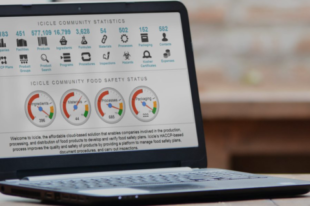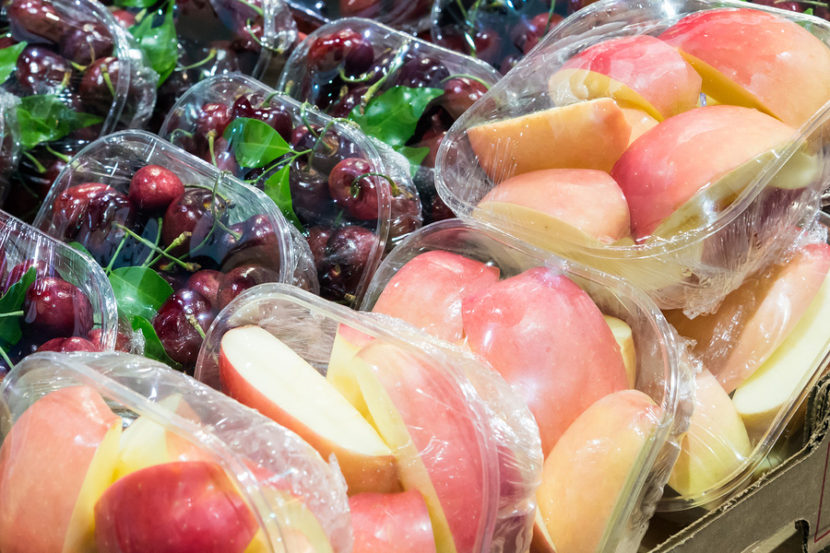Sharing Knowledge is Key to Harmonizing Safe Food for Canadians Act (SFCA) with Food Safety Modernization Act (FSMA)
By Jennefer Griffith
In 2011, the Food Safety Modernization Act was signed into law in the United States. In 2012, the Safe Food for Canadians Act became law in Canada. Both countries have demonstrated their commitment to making food as safe as possible by modernizing legislation and supporting a robust industry to support a food safety culture.
Updated food safety legislation protects consumers through prevention and streamlines regulations and administration for improved ease of compliance by businesses. Both Canadian and U.S. governments also understand that as top food safety performing countries, they are enhancing international market and trade opportunities.
Ask any food and beverage manufacturer in either Canada or the U.S., and they will likely tell you that food safety is a business pledge that requires continuous training, education and qualified personnel. To develop a strong and resilient food safety culture, food safety behaviours, protocols and compliance must be deeply embedded in every aspect of a business, with leadership by management and engagement by all employees.
In Canada, the Food Processing Human Resources Council (FPHRC) provides food safety training and education to the country’s 6,200 food and beverage manufacturing businesses. As the new Safe Food for Canadians Act comes into play, businesses will be required to take training in preparation for the development of a food safety plan. Most food processing and packing facilities, as well as importers and exporters, will have to complete a Preventive Control Plan outlining the measures and actions taken to ensure that food is safe. Safe Food Canada and FPHRC’s on-line training program, Introduction to Preventive Control Plan for Micro, Small & Medium-Sized Food Businesses is assisting companies with the following:
-
- Understanding the role of government, inspectors and food business operators in ensuring a safe food supply
- Understanding how a food safety culture positively influences an operation
- Differentiating between three types of food safety hazards
- Identifying preventive controls and describing components of a preventative control plan
- Completing the preliminary activities for developing a Preventive Control Plan
In Canada, in addition to having a strong and mutually beneficial trading relationship with the United States, the food and beverage manufacturing industry has learned a lot from our neighbours to the south. Canadian and U.S. governments are also signatories to a regulatory partnership statement meant to advance regulatory cooperation that includes food safety regulations. As the Canadian Food Inspection Agency and the US Food and Drug Administration implement their modernized food safety rules and regulations, they have committed to working together to ensure that their respective systems deliver comparable public health outcomes and reduce unnecessary duplication.
It is incumbent on our industries in both Canada and the U.S. to similarly share in education and training as we implement new safe food regulations and rules. Not only are we allies in food and beverage manufacturing, we are consumers of each other’s products and world leaders in production.
One of our FPHRC members, Tim Schinkel, of Schinkel’s Legacy Gluten Free, summed it up well when he said, “Our company has a strict HACCP-based food safety program in place and we have been federally registered since April 2016. Harmonization between Canada and the U.S. is key to business development and growth for our company.”
About the Author
Jennefer Griffith is Executive Director for the Food Processing Human Resources Council (FPHRC) – the workforce and skills development non-profit organization for Canada’s food and beverage manufacturing industry. At FPHRC, food and beverage manufacturing businesses have access to the Canadian Food Processors Institute, which includes a portfolio of food safety training resources, and the Skills Library for job descriptions, profiles, standards and competencies.
[/vc_column_text][/vc_column][/vc_row]

-
 FeaturedRisk management
The Cost of a Breach: What a Cyberattack Could Mean for Food Safety Recalls
FeaturedRisk management
The Cost of a Breach: What a Cyberattack Could Mean for Food Safety Recalls
-
 FeaturedRisk management
Securing the Food Chain: How ISO/IEC 27001 Strengthens Cybersecurity
FeaturedRisk management
Securing the Food Chain: How ISO/IEC 27001 Strengthens Cybersecurity
-
 FeaturedRisk management
Revolutionizing Food Safety Training: Breaking Out of the “Check-the-Box” Mentality
FeaturedRisk management
Revolutionizing Food Safety Training: Breaking Out of the “Check-the-Box” Mentality
-
 GFSI Standards
GFSI 2025: Building Trust, Tech-Forward Solutions, and Global Unity in Food Safety
GFSI Standards
GFSI 2025: Building Trust, Tech-Forward Solutions, and Global Unity in Food Safety
-
 FeaturedFood Safety
Integrated Pest Management: Strategies to Protect Your Brand’s Reputation
FeaturedFood Safety
Integrated Pest Management: Strategies to Protect Your Brand’s Reputation
-
 FeaturedFood Safety Culture & Training
No Open Door Policy: Challenges That Impact Pest Control in Food Processing Plants
FeaturedFood Safety Culture & Training
No Open Door Policy: Challenges That Impact Pest Control in Food Processing Plants




